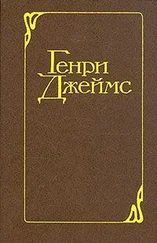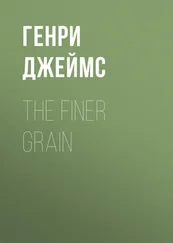Генри Джеймс - Confidence
Здесь есть возможность читать онлайн «Генри Джеймс - Confidence» — ознакомительный отрывок электронной книги совершенно бесплатно, а после прочтения отрывка купить полную версию. В некоторых случаях можно слушать аудио, скачать через торрент в формате fb2 и присутствует краткое содержание. Жанр: foreign_prose, foreign_antique, на английском языке. Описание произведения, (предисловие) а так же отзывы посетителей доступны на портале библиотеки ЛибКат.
- Название:Confidence
- Автор:
- Жанр:
- Год:неизвестен
- ISBN:нет данных
- Рейтинг книги:4 / 5. Голосов: 1
-
Избранное:Добавить в избранное
- Отзывы:
-
Ваша оценка:
- 80
- 1
- 2
- 3
- 4
- 5
Confidence: краткое содержание, описание и аннотация
Предлагаем к чтению аннотацию, описание, краткое содержание или предисловие (зависит от того, что написал сам автор книги «Confidence»). Если вы не нашли необходимую информацию о книге — напишите в комментариях, мы постараемся отыскать её.
Confidence — читать онлайн ознакомительный отрывок
Ниже представлен текст книги, разбитый по страницам. Система сохранения места последней прочитанной страницы, позволяет с удобством читать онлайн бесплатно книгу «Confidence», без необходимости каждый раз заново искать на чём Вы остановились. Поставьте закладку, и сможете в любой момент перейти на страницу, на которой закончили чтение.
Интервал:
Закладка:
Henry James
Confidence
CHAPTER I
It was in the early days of April; Bernard Longueville had been spending the winter in Rome. He had travelled northward with the consciousness of several social duties that appealed to him from the further side of the Alps, but he was under the charm of the Italian spring, and he made a pretext for lingering. He had spent five days at Siena, where he had intended to spend but two, and still it was impossible to continue his journey. He was a young man of a contemplative and speculative turn, and this was his first visit to Italy, so that if he dallied by the way he should not be harshly judged. He had a fancy for sketching, and it was on his conscience to take a few pictorial notes. There were two old inns at Siena, both of them very shabby and very dirty. The one at which Longueville had taken up his abode was entered by a dark, pestiferous arch-way, surmounted by a sign which at a distance might have been read by the travellers as the Dantean injunction to renounce all hope. The other was not far off, and the day after his arrival, as he passed it, he saw two ladies going in who evidently belonged to the large fraternity of Anglo-Saxon tourists, and one of whom was young and carried herself very well. Longueville had his share—or more than his share—of gallantry, and this incident awakened a regret. If he had gone to the other inn he might have had charming company: at his own establishment there was no one but an aesthetic German who smoked bad tobacco in the dining-room. He remarked to himself that this was always his luck, and the remark was characteristic of the man; it was charged with the feeling of the moment, but it was not absolutely just; it was the result of an acute impression made by the particular occasion; but it failed in appreciation of a providence which had sprinkled Longueville’s career with happy accidents—accidents, especially, in which his characteristic gallantry was not allowed to rust for want of exercise. He lounged, however, contentedly enough through these bright, still days of a Tuscan April, drawing much entertainment from the high picturesqueness of the things about him. Siena, a few years since, was a flawless gift of the Middle Ages to the modern imagination. No other Italian city could have been more interesting to an observer fond of reconstructing obsolete manners. This was a taste of Bernard Longueville’s, who had a relish for serious literature, and at one time had made several lively excursions into mediaeval history. His friends thought him very clever, and at the same time had an easy feeling about him which was a tribute to his freedom from pedantry. He was clever indeed, and an excellent companion; but the real measure of his brilliancy was in the success with which he entertained himself. He was much addicted to conversing with his own wit, and he greatly enjoyed his own society. Clever as he often was in talking with his friends, I am not sure that his best things, as the phrase is, were not for his own ears. And this was not on account of any cynical contempt for the understanding of his fellow-creatures: it was simply because what I have called his own society was more of a stimulus than that of most other people. And yet he was not for this reason fond of solitude; he was, on the contrary, a very sociable animal. It must be admitted at the outset that he had a nature which seemed at several points to contradict itself, as will probably be perceived in the course of this narration.
He entertained himself greatly with his reflections and meditations upon Sienese architecture and early Tuscan art, upon Italian street-life and the geological idiosyncrasies of the Apennines. If he had only gone to the other inn, that nice-looking girl whom he had seen passing under the dusky portal with her face turned away from him might have broken bread with him at this intellectual banquet. Then came a day, however, when it seemed for a moment that if she were disposed she might gather up the crumbs of the feast. Longueville, every morning after breakfast, took a turn in the great square of Siena—the vast piazza, shaped like a horse-shoe, where the market is held beneath the windows of that crenellated palace from whose overhanging cornice a tall, straight tower springs up with a movement as light as that of a single plume in the bonnet of a captain. Here he strolled about, watching a brown contadino disembarrass his donkey, noting the progress of half an hour’s chaffer over a bundle of carrots, wishing a young girl with eyes like animated agates would let him sketch her, and gazing up at intervals at the beautiful, slim tower, as it played at contrasts with the large blue air. After he had spent the greater part of a week in these grave considerations, he made up his mind to leave Siena. But he was not content with what he had done for his portfolio. Siena was eminently sketchable, but he had not been industrious. On the last morning of his visit, as he stood staring about him in the crowded piazza, and feeling that, in spite of its picturesqueness, this was an awkward place for setting up an easel, he bethought himself, by contrast, of a quiet corner in another part of the town, which he had chanced upon in one of his first walks—an angle of a lonely terrace that abutted upon the city-wall, where three or four superannuated objects seemed to slumber in the sunshine—the open door of an empty church, with a faded fresco exposed to the air in the arch above it, and an ancient beggar-woman sitting beside it on a three-legged stool. The little terrace had an old polished parapet, about as high as a man’s breast, above which was a view of strange, sad-colored hills. Outside, to the left, the wall of the town made an outward bend, and exposed its rugged and rusty complexion. There was a smooth stone bench set into the wall of the church, on which Longueville had rested for an hour, observing the composition of the little picture of which I have indicated the elements, and of which the parapet of the terrace would form the foreground. The thing was what painters call a subject, and he had promised himself to come back with his utensils. This morning he returned to the inn and took possession of them, and then he made his way through a labyrinth of empty streets, lying on the edge of the town, within the wall, like the superfluous folds of a garment whose wearer has shrunken with old age. He reached his little grass-grown terrace, and found it as sunny and as private as before. The old mendicant was mumbling petitions, sacred and profane, at the church door; but save for this the stillness was unbroken. The yellow sunshine warmed the brown surface of the city-wall, and lighted the hollows of the Etruscan hills. Longueville settled himself on the empty bench, and, arranging his little portable apparatus, began to ply his brushes. He worked for some time smoothly and rapidly, with an agreeable sense of the absence of obstacles. It seemed almost an interruption when, in the silent air, he heard a distant bell in the town strike noon. Shortly after this, there was another interruption. The sound of a soft footstep caused him to look up; whereupon he saw a young woman standing there and bending her eyes upon the graceful artist. A second glance assured him that she was that nice girl whom he had seen going into the other inn with her mother, and suggested that she had just emerged from the little church. He suspected, however—I hardly know why—that she had been looking at him for some moments before he perceived her. It would perhaps be impertinent to inquire what she thought of him; but Longueville, in the space of an instant, made two or three reflections upon the young lady. One of them was to the effect that she was a handsome creature, but that she looked rather bold; the burden of the other was that—yes, decidedly—she was a compatriot.
Читать дальшеИнтервал:
Закладка:
Похожие книги на «Confidence»
Представляем Вашему вниманию похожие книги на «Confidence» списком для выбора. Мы отобрали схожую по названию и смыслу литературу в надежде предоставить читателям больше вариантов отыскать новые, интересные, ещё непрочитанные произведения.
Обсуждение, отзывы о книге «Confidence» и просто собственные мнения читателей. Оставьте ваши комментарии, напишите, что Вы думаете о произведении, его смысле или главных героях. Укажите что конкретно понравилось, а что нет, и почему Вы так считаете.












